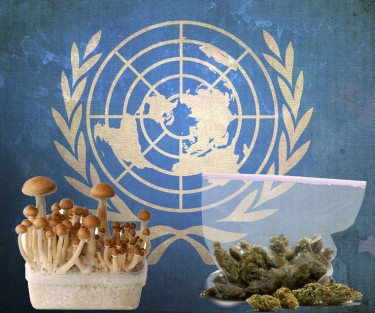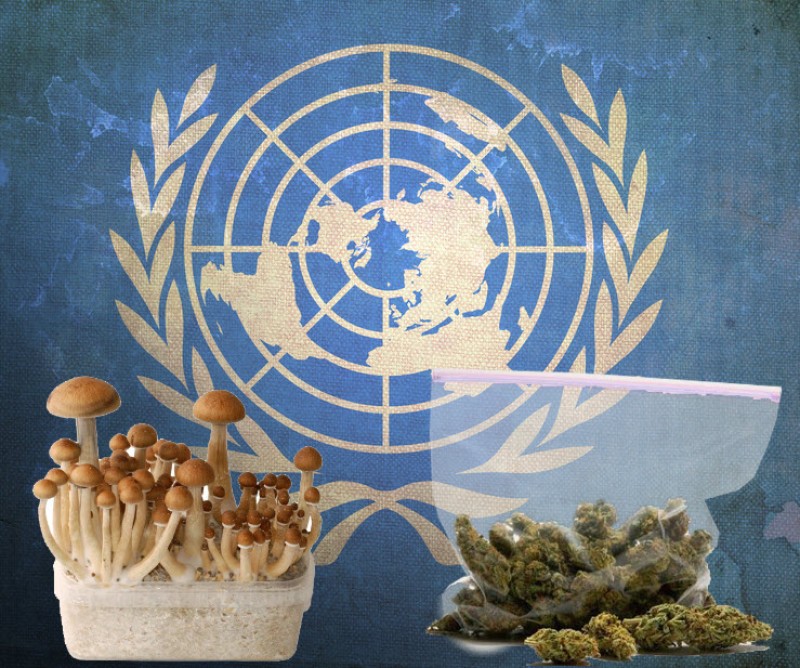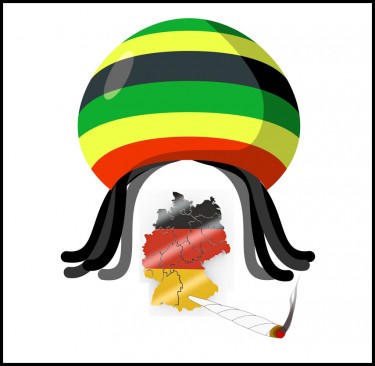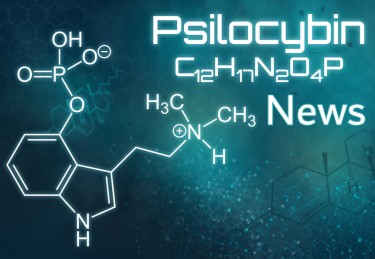
Could a worldwide policy change be the best way to kickstart research into the medicinal potential of psilocybin?
A new movement for international psychedelic reform has been put in motion. A global coalition consisting of the Beckley Foundation, the Multidisciplinary Association For Psychedelic Studies (MAPS), Drug Science and Open Foundation, and the Mind Medicine Australia agency launched this Push last Tuesday.
Psychedelics have been banned domestically within the U. S. and internationally for several decades. This new decade seems to be ushering in hopes for psychedelics decriminalization and medicinal use. The global coalition hopes to modify the international policies prohibiting the magic drug. Getting psilocybin mushrooms internationally rescheduled may encourage U.S lawmakers to follow suit.
Tired of the Foot-Dragging
Advocates have spoken out countless times about having a bill which permits the use of psychedelics to treat certain illnesses. However, the U.S lawmakers have done a lot of Foot-draggings instead. Just last year, a bill was finally approved to allow a limited level of research into the drug's therapeutic potential.
The International Therapeutic Psilocybin Rescheduling Initiative (ITPRI) has begun its push for psychedelic reform. The body is committed to rescheduling these substances banned following the United Nations 1971 convention on psychotropics. This 1971 policy places Psilocybin as the most harmful drug on the list, hence the tight restriction on the Psychedelic drug. In the U.S, Psilocybin also fits into the Schedule 1 category. Many advocates of Psychedelics and cannabis believe this classification ought to be reserved for "hard" drugs that pose serious health risks to people, regardless of their region—Drugs with little or no known medicinal benefit.
Recent developments have proven that psilocybin or magic mushrooms do not fit into the criteria for Schedule I substances. The global organization pointed out that psilocybin is wrongly subjected to harsh limits despite its medical potentials. An important point made during the convention is that Psilocybin could be licensed, securely manufactured in limited quantities (for a start), and imported or exported based on acceptable regulations. This is better than the gross oversight of the industry by international bodies.
A Push For More Research
If this push is successful, schedule I researchers can study psilocybin, magic mushroom, LSD, and other related psychedelics. To do this, these scientists will also have to face international regulations. These hurdles won't come cheap, adding an extra cost and complexity to the research. The prohibition of the substance by governments worldwide may negatively impact ethical approvals, collaborations, and funding.
The first step in adequately launching this new measure will involve connecting with member nations who are a part of the treaty signees to begin a formal review of its stance against psilocybin and other psychedelic substances. This review will bring to light the benefits and risks of the drug. To get the process started, one country is needed to request a review from the World Health Organization (WHO).
The WHO itself could also initiate the procedure. Once the request is made and approved, the international body's. The Executive Committee on Drug Dependence (ECDD) would set the review process in motion. Recommendations on policy change will be proffered by member nations. Any review that gains the support of two-thirds of signatory countries would be signed into law, whether or not it involves a recommendation for rescheduling
Christopher Koddermann, ITPRI chair of the board of directors and co-founder, stated in a press release that a change of psilocybin's status as a schedule I drug is way overdue. He added that there's a better scientific understanding of the substance's high therapeutic potential and low addiction possibilities. "This is sufficient to turn the tables around," he explained.
Possible Member Nations To Initiate Proceedings
The ITPRI says it has identified about a dozen countries willing to propose a review to reschedule psilocybin around the world. According to Mr. Koddermann, Canada is the most suitable option from the available choices. Canada is one of a few countries that have fully decriminalized and legalized cannabis (a schedule I substance). The country has also loosened its restrictions on entheogen use for critically ill patients.
The founder of ITPRI partner Drug Science and head of Imperial College London's Center for Psychedelic Research, David Butt, emphasized the coalition's shared view that the existing international scheduling of psilocybin is seriously restricting the progress of developing treatments for neurology patients with the drug.
Willem Scholten, A former secretary to the WHO ECDD and an advisory board member with ITPRI, added that reviewing the 1971 convention policies is a game-changing chance to push the Psilocybin industry forward. This will accelerate the creation of life-changing medications for patients, as well as research other medical potentials the drug has.
The Coalition's Fears
As much as one member country can initiate this review process, another can oppose it. Recently the WHO maintained its stance against prescribing Krotom (a plant well known for its pain-relieving potentials). This decision was reached despite the results from a scientific review of the plant. The ITPRI has concerns that WHO'S ECDD could do the same if a Rescheduling recommendation is made for Psilocybin. On Kratom, the WHO could have proposed a more critical review that may have resulted in a reschedule, or it could have convinced member countries to regulate the drug.
In 2020, the United Nations Commission on Narcotic Drugs authorized a WHO recommendation to reschedule cannabis from the most restrictive international scheduling category.
Psychedelics In The US
While the international coalition works tirelessly to advance the policy review initiative, pro-psychedelics groups in the United States are also working tirelessly to initiate reforms to existing federal policies regarding plants such as Psilocybin or magic mushrooms.
Concurrently, bills are being pushed to the Senate and House to end cannabis prohibition. Cannabis and Psychedelics reforms are gradually gaining the Biden administration's attention.
Rep. Earl Blumenauer has sought the DEA's cooperation in allowing patient's use psilocybin legally without fearing federal repercussions. He added that the drug would be used as an investigational treatment in ongoing clinical trials.
Lastly
Millions of people around the world are excited about the recent advancements in psychedelics research. Many of these incredible feats will be followed by international and domestic policy changes.
UN DRUG TREATIES, READ MORE..
UN DRUG TREATIES BE DAMNED, GERMANY IMPORTS JAMAICIAN WEED!








